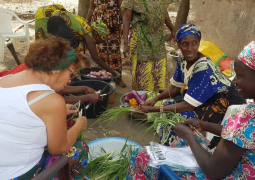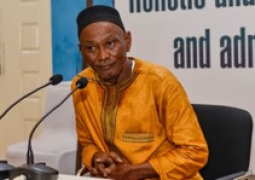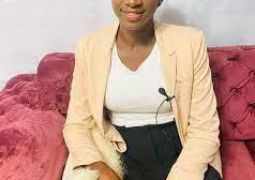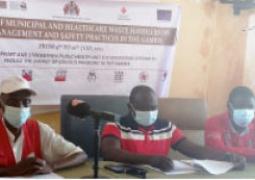He made the remarks during a shared Sardinella Project of the Food and Agricultural Organisation’s EAF-Nansen programme on 9th August 2022.
PS Gibba added that a greater percentage of actors along the fisheries value chain especially in the post-harvest sector are women.
However, he said, they are not adequately represented in management and decision-making processes like their male counterparts.
He added that The Gambia’s Fisheries sector plays a significant role in the local livelihoods and national economy.
“The fisheries sector contributes about 12.1 percent to The Gambia’s Gross Domestic Product (GDP) and estimates show that about 200,000 people are directly or indirectly dependent on it,” he also said.
With support from FAO through the EAF-Nansen programme, Gibba said his ministry is ready to ensure the contribution of women and youth in the fisheries sector is adequately recognised.
Moshibudi Rampedi, FAO country representative, said the contribution of women and youth in the fisheries sector is often poorly documented.
She said that results are relatively low in capacity of fisheries officers and decision makers to mainstream gender in the development and implementation of national fisheries policies and plans.
Ms. Rampedi noted that FAO recognises that ensuring the equal participation of both men and women is essential in achieving these global goals.
“The thematic policy statement in The Gambia’s National Gender and Women Empowerment Policy calls on Government to take measures to establish gender units in all ministries and departments and allocate resources for effective gender mainstreaming,” she pointed out.
Anna Mbenga Cham, director of Fisheries at the Ministry of Fisheries and Water Resources, said gender analysis and mainstream is a crucial step in the stakeholder analysis steps of the EAF process.
She added that an institutional approach is being pursued to gender mainstream whereby national ‘gender desks’ are inaugurated to ensure gender issues are considered in all policies and interventions within the fisheries sector.





